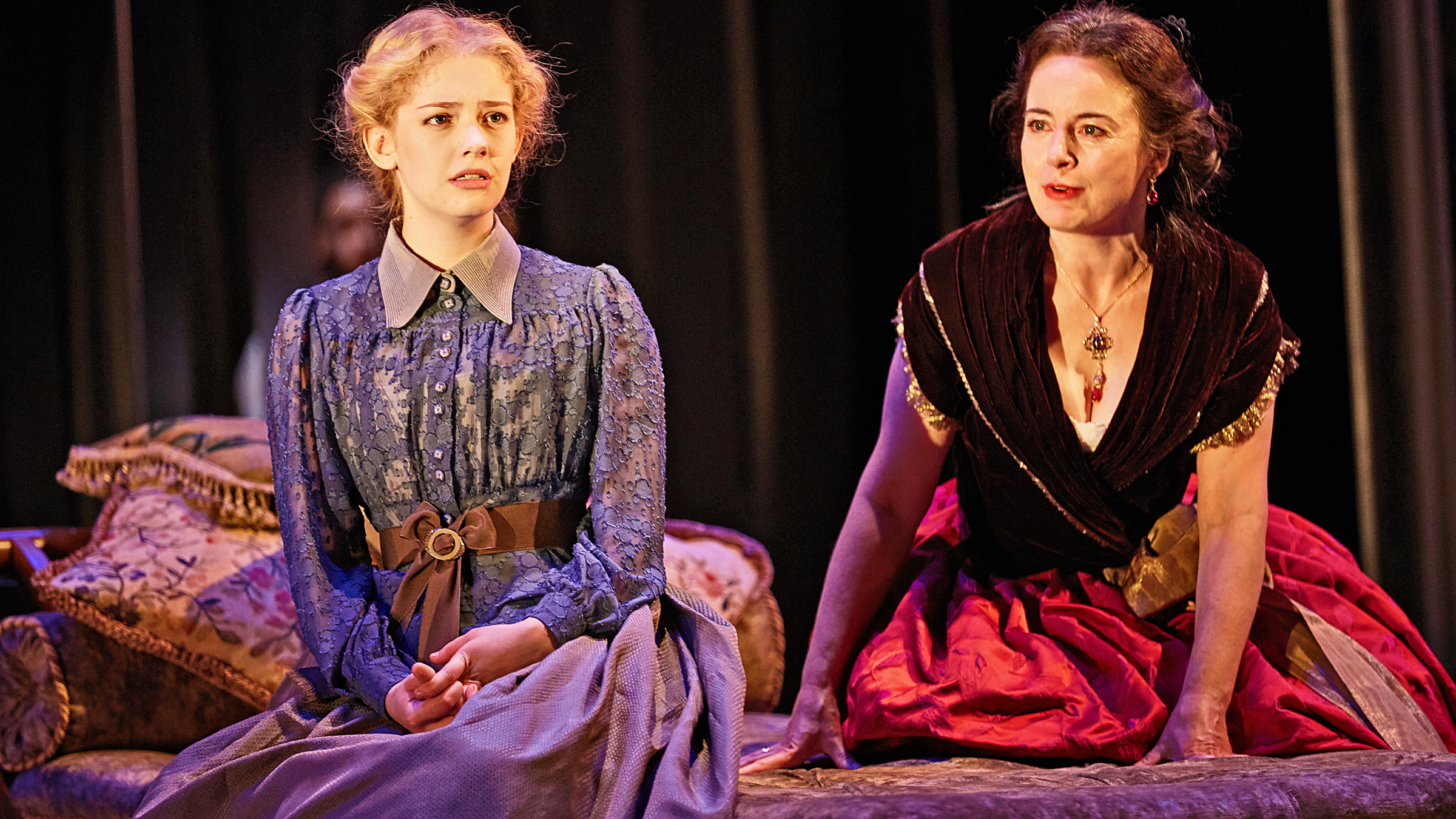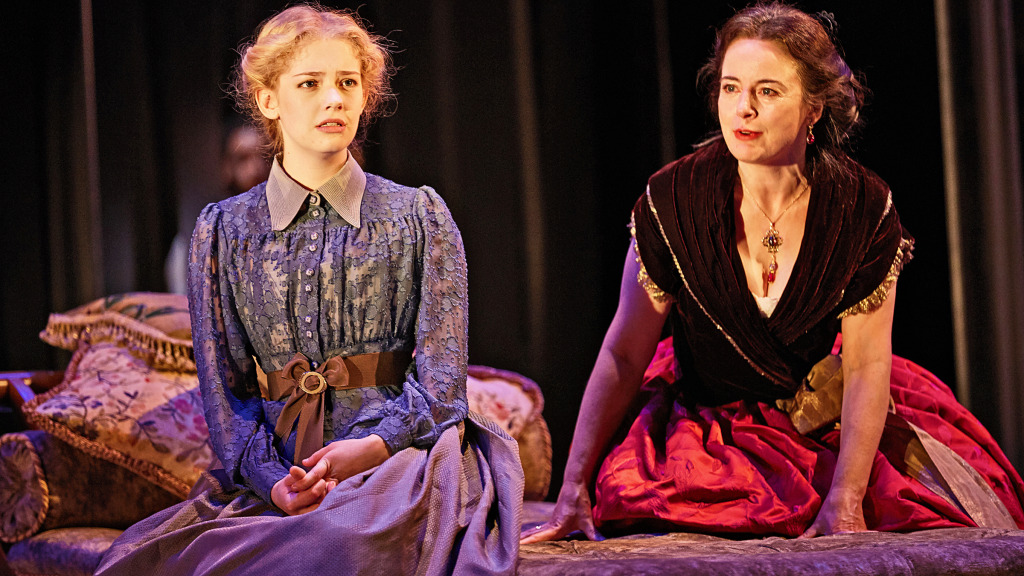ALASTAIR CURTIS reviews ‘Three Days in the Country’ at the National Theatre.
July is often a time of bad weather and misplaced optimism for us Brits, yet inside The National Theatre, a glorious Russian summer has spilt across the Lyttelton stage in one painterly sweep. The characters of Turgenev’s ‘A Month in the Country’ strip off as we layer up, bearing parasols and fans as they walk through the fields of nineteenth-century Russia. But summer is as much a state of mind as a seasonal change: it’s a time for the instinctual and the unthinking, for illicit coupling under the trees and on the billiard table. The heart opens wide and a once straight-laced household falls in.
Patrick Marber has whittled Turgenev’s classic down to a nifty two hours in one of his three outings at the National this season (alongside his tinkering with ‘The Beaux’ Strategem’ and the premiere of his new play ‘The Red Lion’). Three days, rather than the original month, is all the time he gives the characters to unstitch their present relationships and thread new ones, to flout convention and to make wild, romantic, regrettable decisions.
It is the dashing young tutor Belyaev, a fresh-faced Muscovite, who gives the household a burst of electroshock therapy. Several pairs of eyes follow him as he crosses the room: those of the fledgling Vera (Lily Sacofsky), her mother Natalya (a luminous Amanda Drew), and the singing servant Katya (Cherrelle Skeete). Royce Piersson’s Belyaev is all brawn, but both mother and daughter begin to dote on him. Amanda Drew’s Natalya palpitates at the centre of the play; after many frustrated years married to John Light’s dispassionate Arkady, her fluttering heart makes a grab at love. This is to the consternation of John Simm’s Rakitin, a friend of the family who pines over a kiss he once received from Natalya. Simm’s performance is one of quiet tragedy: he ‘would have died’ for Natalya, and seeing her with Belyaev, he admits that ‘now I have’. From the serfs upwards, the whole estate plays at love; prudence, sensibility and chastity slips off like a bathrobe.
It could become a hot mess, but in Mark Thompson’s clear, abstract set the actors sit around the edge of the stage on wooden chairs, moving across the stage like pawns on a chessboard. Above their heads dangle transparent plastic industrial sheeting. Down on the stage is a glowing red door. The characters orbit the door; the older characters eye it wondrously, the younger ones dart in and out with a post-coital glow. Marber has sieved Russian drama into a collection of simple movements to create a production as liberated as the characters it contains.
Three days later and the clouds rumble, the rain falls, and Marber’s script cools. It’s as if the household wakes with a hangover, pale-faced and ashamed of all that has transpired. ‘Once the words were spoken the feeling was dead’, Belyaev says as he skulks back to Moscow and his senses, leaving the despairing Natalya in the arms of her disinterested husband. Turgenev’s aphorisms are bittersweet: love so quickly nurtured, so quickly dies. Others come off just as badly, but the production is its most poignant with Mark Gatiss’s Shpigelsky. The quack country doctor, composed in all matters but that of love, is quite literally reduced to spasms as he collapses when trying to get down on one knee for Debra Gillet’s joyful spinster, Lizaveta. It gets the loudest laughs: Gatiss scrapes his face along the floor, clutching his back, trying to get upright before humbly popping the question in a fit of summer madness. But he crumples silently when he doesn’t get the answer he wants.
And so Marber’s buoyant production fills its pockets with stones, and you get that sinking September back-to-school feeling. The sky blooms a dark violet and there is the thrum of approaching twilight in Adam Cork’s sound design. Gawn Grainger’s gruff tutor sits young Kolya down and suggests that his heart will be broken too, in time. Love is just ‘red-bellied ladies and teary men’: a disease to be diagnosed, remedied, repressed. The ending is corset tightening and moral entrenching. While underlining the transience of summer joys, it undoes some of the delicacy and poise found elsewhere in Marber’s pitch-perfect production. In Turgenev’s four-hour extravaganza of a play (which he believed was unstageable), the end of summer may come as mild relief. Having cracked the play in two, Marber leaves us wanting more time in the sun. Perhaps that’s how it should be, but after summer’s saturnalia, the house lights come as a slightly overzealous slap on the wrist.
‘Three Days in the Country’ runs until 21st October in the Lyttelton Theatre. £5 tickets are available through Entry Pass. Alternatively, £20 Friday Rush tickets are available are released each Friday at 1pm.
Images credited to Mark Douet.







